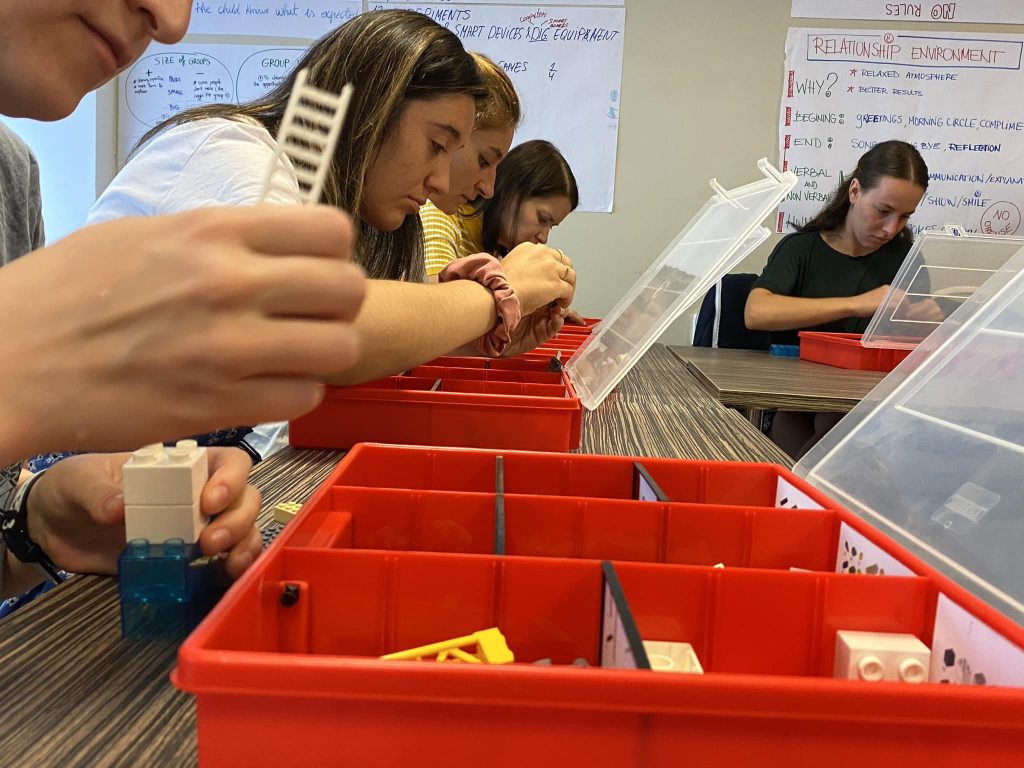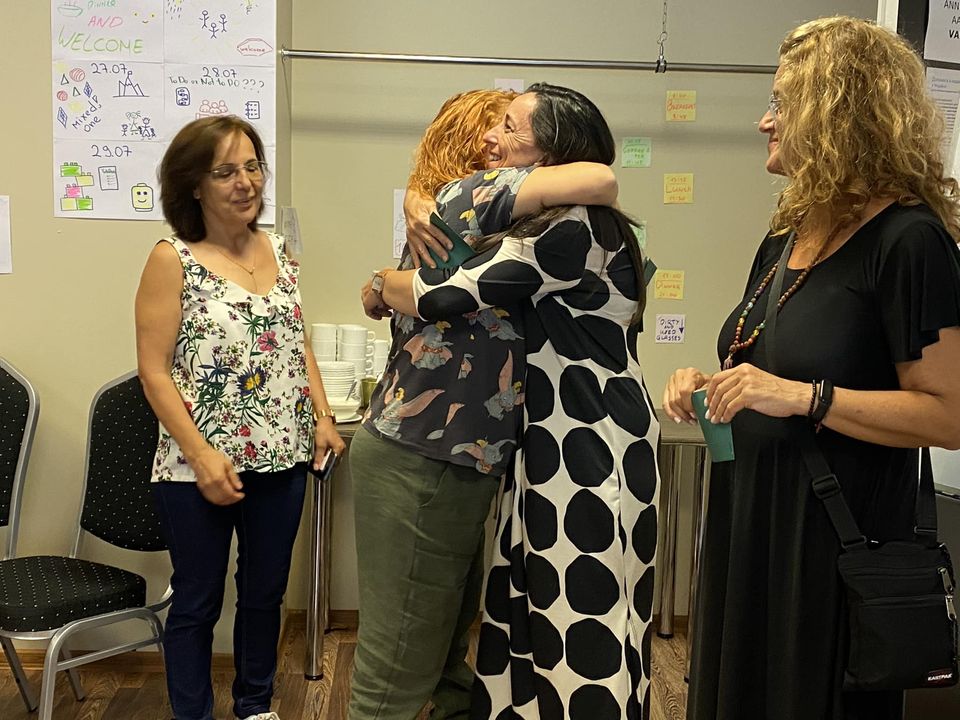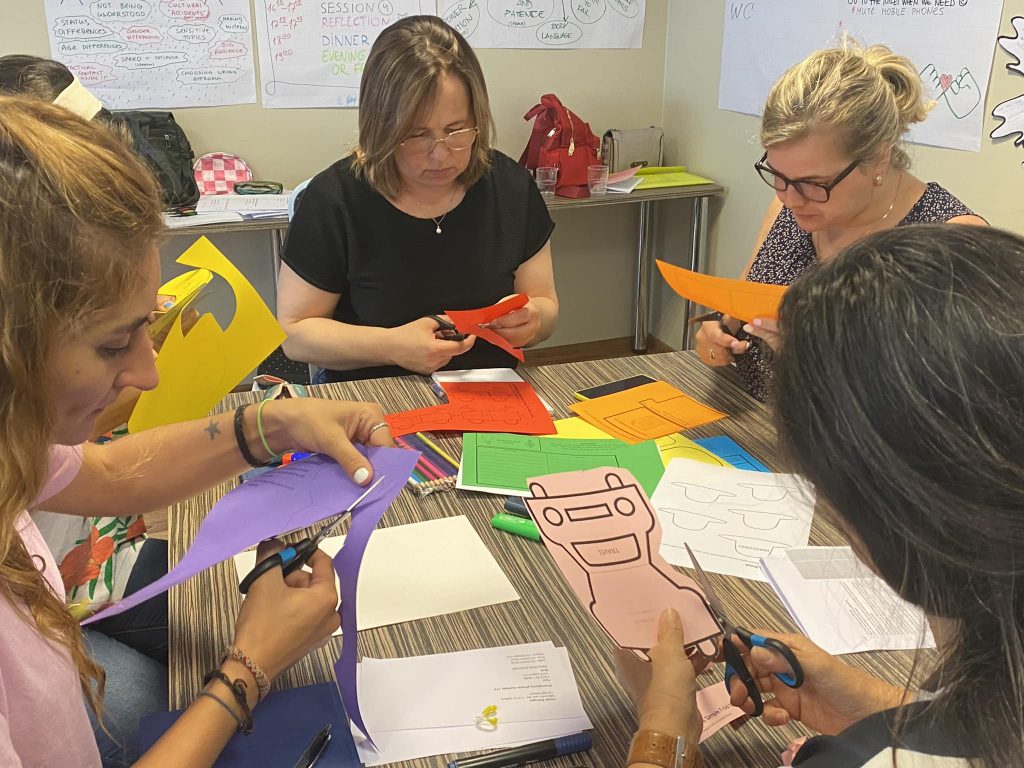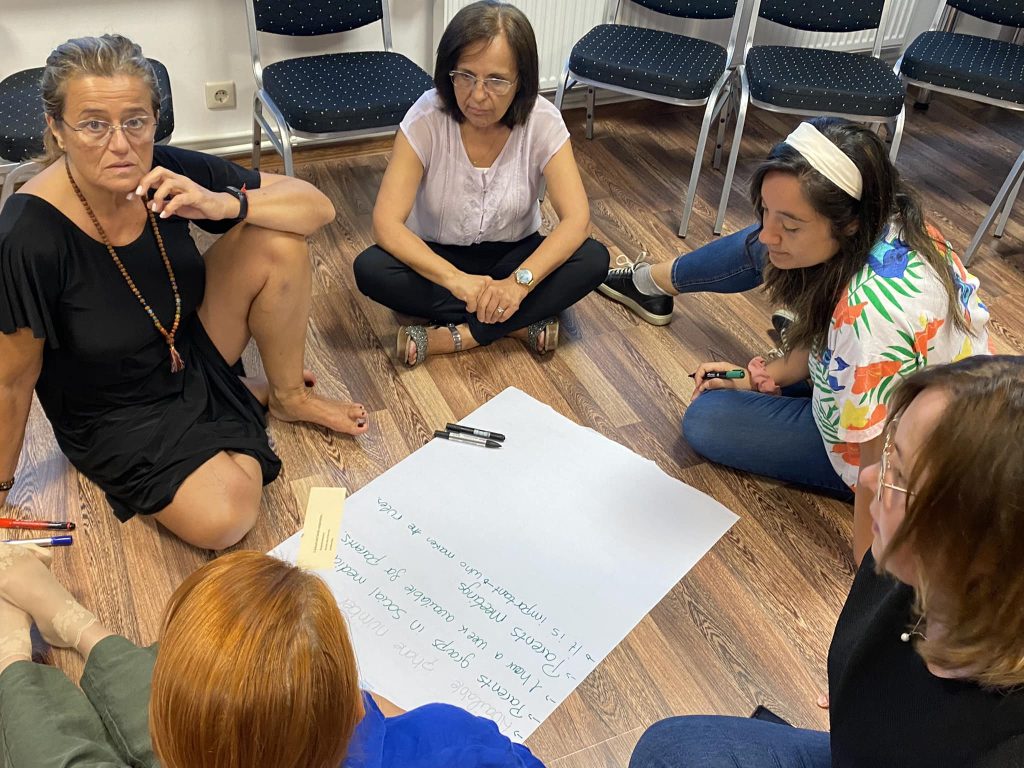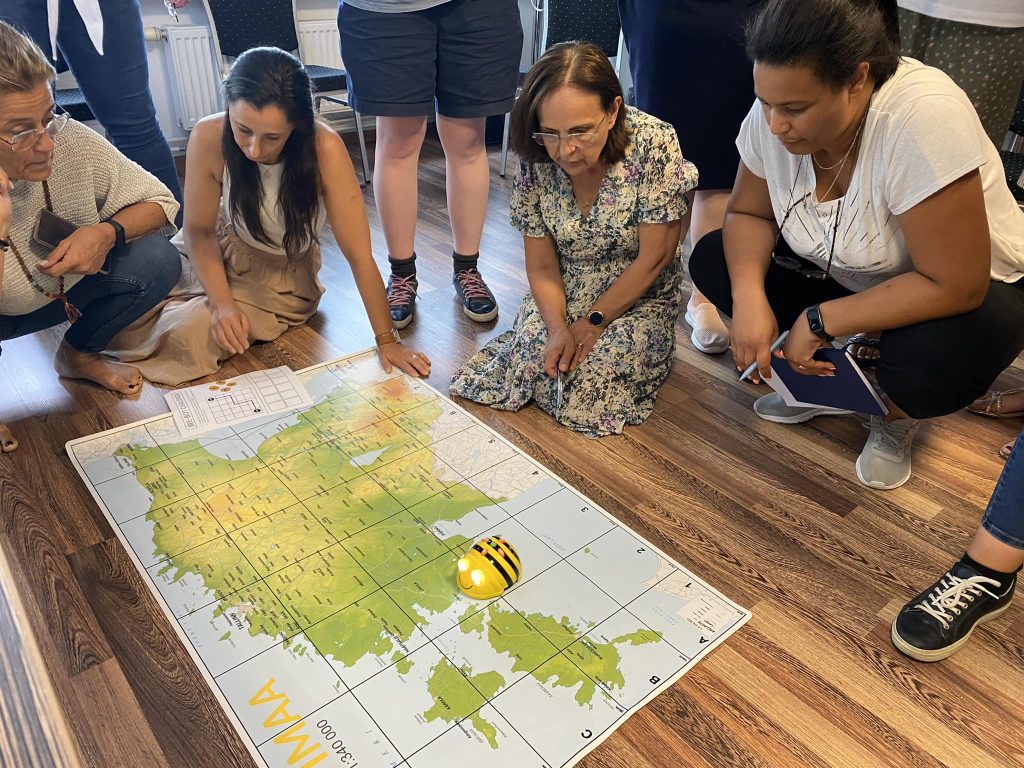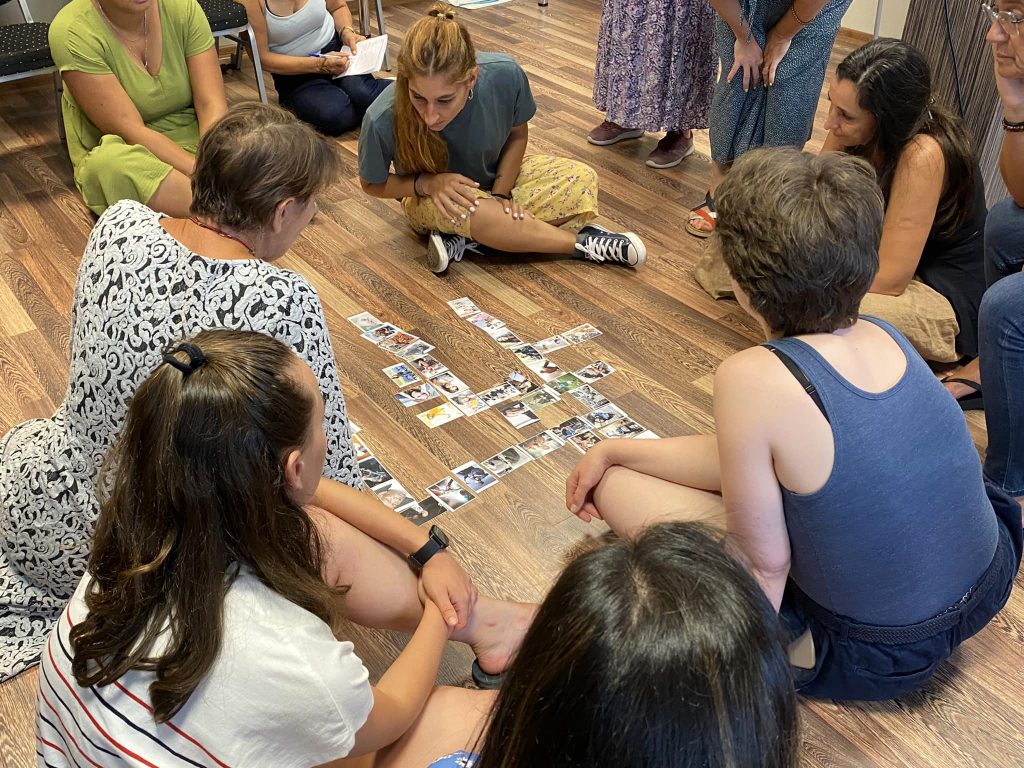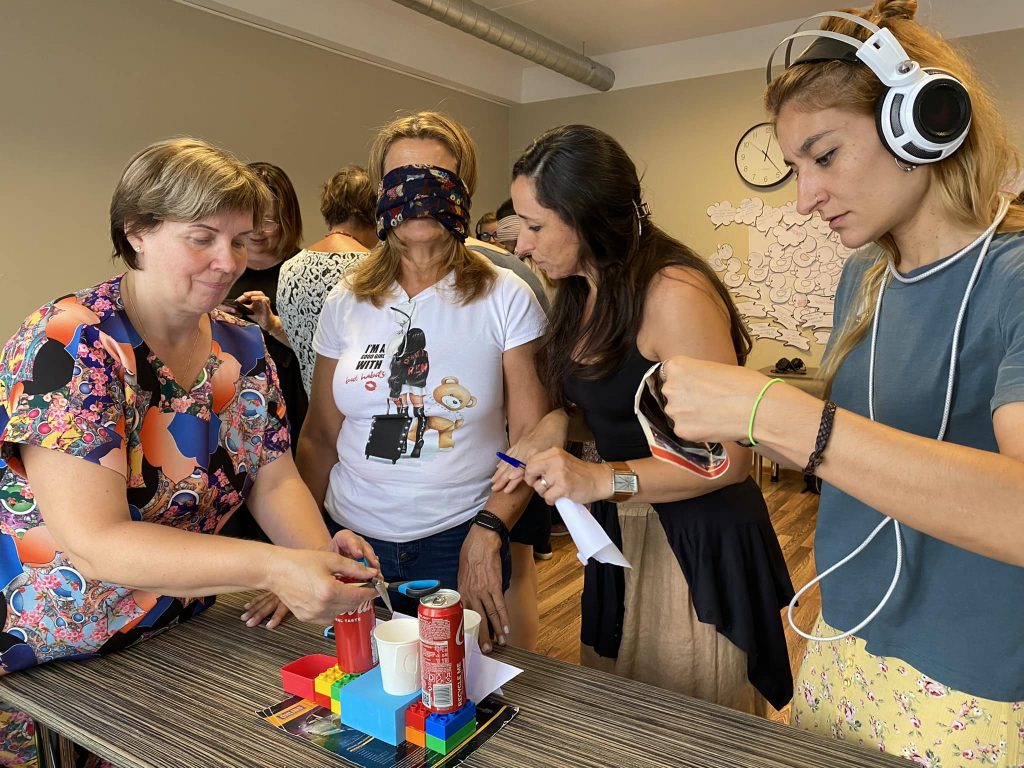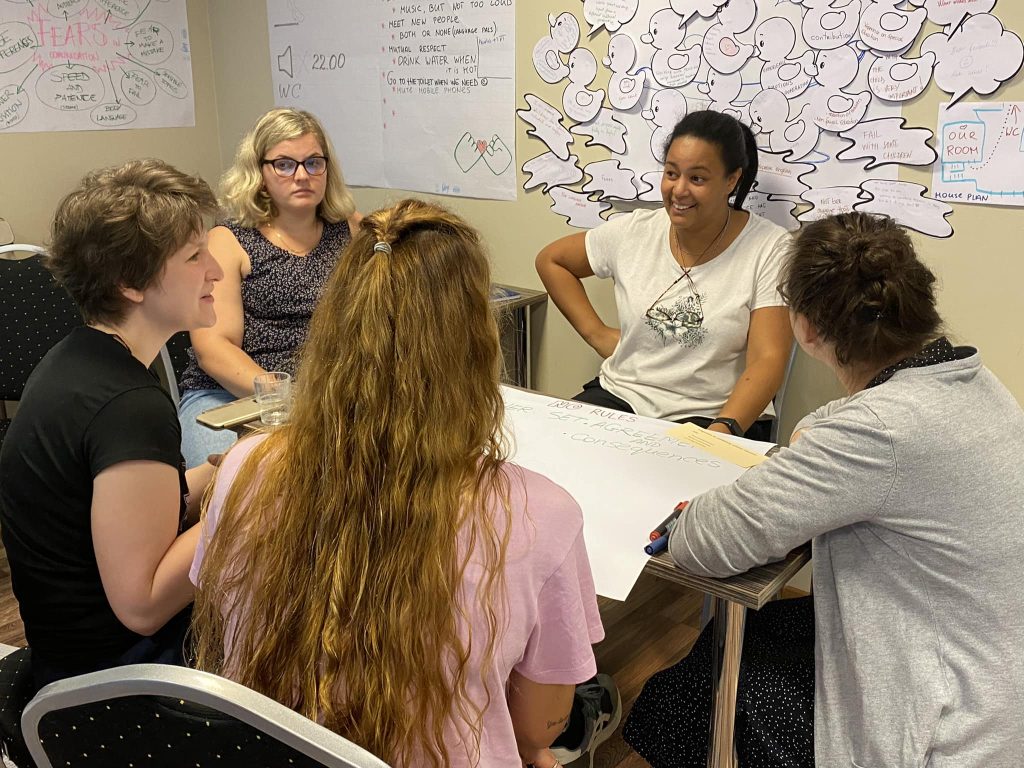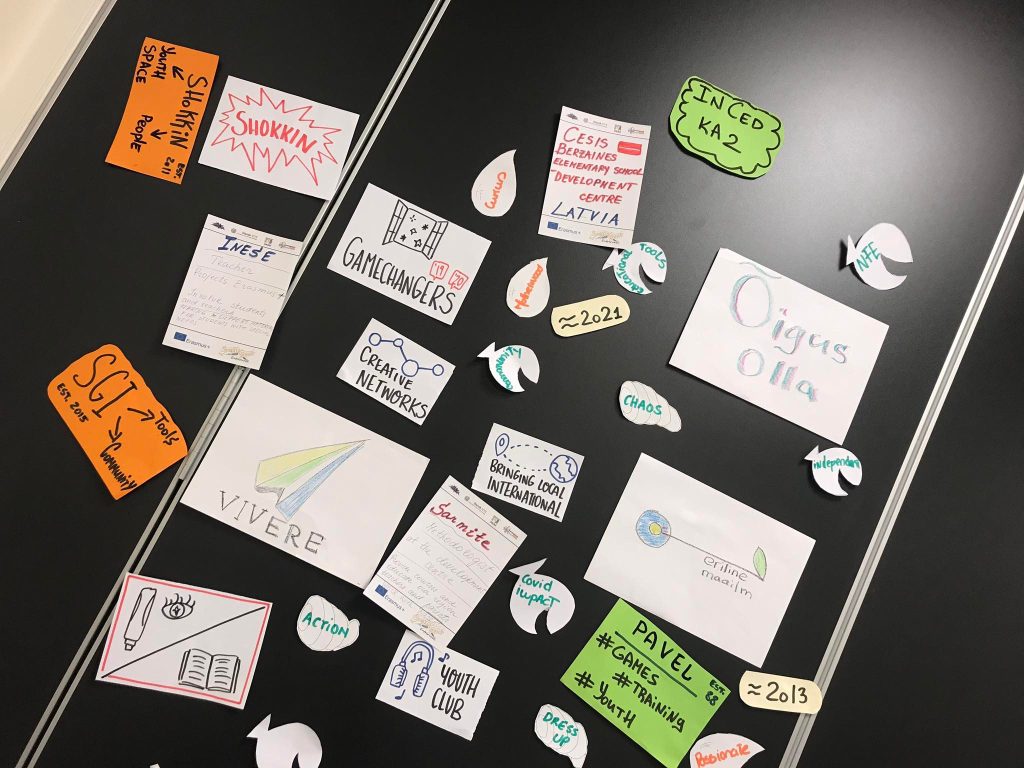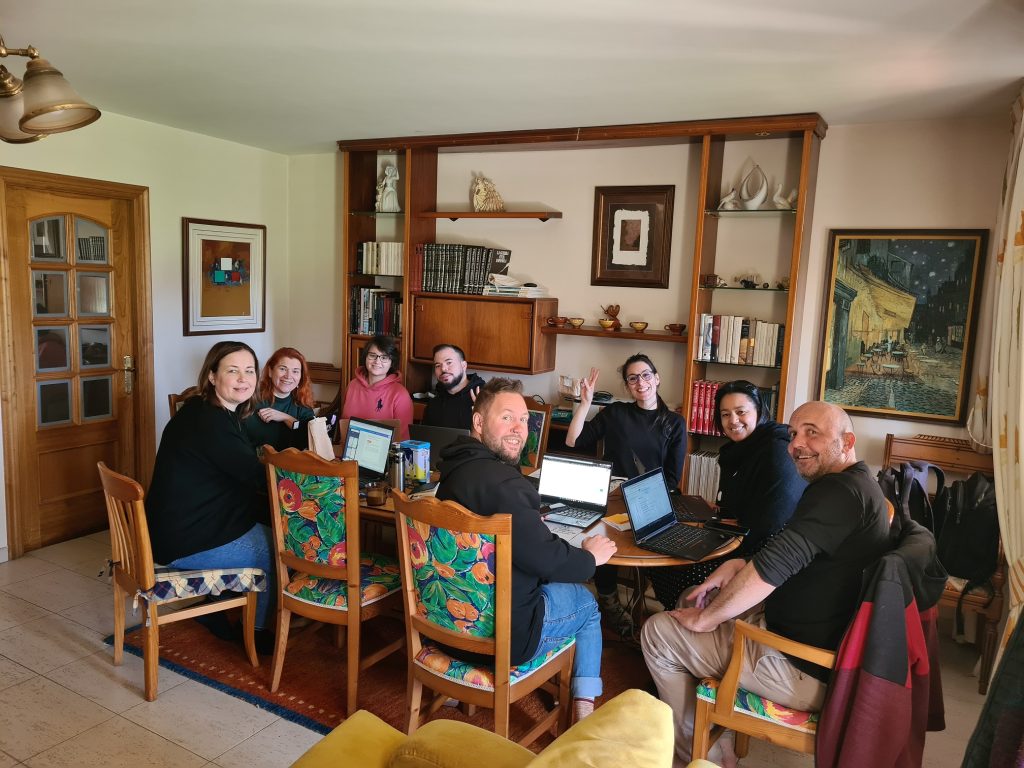Often, youth workers and educators feel the lack of resources for mix-ability groups and this circumstance pushes them to simply design two types of activities: one type for “normo-typical” youth and another for “special needs” youth. Therefore, they don’t find the motivation to practice inclusive education per se, and that is why we decided to build up the knowledge, competence, and knowledge of these educators and youth workers.
From 25th to 30th July 2022, 14 educators from Portugal, Spain, Estonia, and Latvia met in Estonia to enhance their toolboxes and exchange good practices. This was the first mobility activity of our project, which had the following objectives:
- Explore theoretical background on inclusive education and work with mixed ability groups;
- Study the terminology that must be used when working with mixed ability groups;
- Identify the most important challenges in working with mix-ability groups;
- Provide participants with practical recommendations based on our real case;
- Provide participants with a list of recommendations from the practice of trainers and other group members how to work with mixed ability groups;
- Give participants an understanding of the general principles for adapting methods, exercises, and programs for a mixed ability group;
- Identify and mapping of weaknesses and gaps in the methods of both formal and non-formal education for mixed ability groups.
Day-by-day reports
Day 1
Day 1 was full of diverse activities. At the beginning of the day we pointed out our goals and objectives for this week, we learned about the history of lego and expressed individual unique thinking through it. We were able to determine fears each of us may have regarding participation in the project, what contribution each can make, and what are the anticipations for the project finale and personal growth.
After a refreshing and nutritious lunchtime, we continued discussing our fears, but now regarding communicating with people in a diverse group. A discussion about feelings of a mother of a child with special needs gave us a better idea of another side, the parents feelings. We also took a look at the similarities that apparently very different people may have. After group reflection, it was time to finish the day, but this is only the beginning of our collaboration!
Day 2
Day 2 was a bit more intense and full of activities. We started off by discussing the background of inclusive education and work with mixed-ability groups, shared experiences we had in our countries and compared them. We continued with learning main terminology principles and dug a little bit deeper into the manual.
After lunch, our Latvian participants shared the ways of working and approaches that are applied in their school. They shared some methods and stories that they witnessed. Afterwards, we were able to pick up some interactive study methods from the Vivere School teachers and had a possibility to try them out ourselves, and explored different uses of each method. Additionally, we had an amazing opportunity to meet parents of Vivere School students who shared their own stories and feelings (and we got a taste of some amazing pies). The day was hard and intensive, but our discussions are worth every drop of sweat!
Day 3
On day 3 we started with a big group work discussing such topics as collaboration school and families, creating a relationship-oriented learning environment in the classroom and suggestions for establishing common classroom rules.
After that, we made lapbooks, which covered Do’s and Don’ts listed in our manual. We managed to create very different, but very valuable and informative lapbooks and also took this method into account for our future use.
After lunch we talked about people’s attitudes towards people with disabilities and had a huge discussion regarding this topic. Following that we met a tiny panda bot, who helped us to better understand planning, implementation and evaluation of inclusive education activities.
But the most exciting part of the day was to have dinner out in the city center and had off-topic talks. This helped us know each other better and create life-long bonds. The day was intense, full of surprises and discoveries and big smiles!
Day 4
Day 4 started with us having to say goodbye to our Portuguese team as they were returning back home earlier than others. We then discussed setting learning objectives, group work and kinesthetic activities in a world cafe method.
Following we had a small break and a LEGO serious play session. We were able to try different types of activities, like free building, building by instructions and modifying buildings. We expressed our thoughts and discussed them through our creations. Just when we thought that playing with Lego was left in the past, we had a chance to get back to it! We discussed ERASMUS+ key competences and used Lego bricks to build the ones we thought were necessary for a teacher to have and develop.
We then built a model to identify a perfect teacher. We had a perfect opportunity to try out the LEGO serious play method and participate in it ourselves, led by a wise professional. We then had the final evaluation, where we got back to our fears, contributions and anticipations we wrote down on the first day of the project. And, of course, after dinner we met once again for a farewell game evening, where we played a lot of different types of games and each of us was able to find some games to use in their practice. Overall it was a fun and playful day, but we had to say our goodbyes at the end of it. Still, we were very grateful for each other’s part in the project and we shall all meet again!
——
“IncEd: Inclusive Education” is a Strategic Partnership project is implemented by Vivere Kool (Estonia) in collaboration with Shokkin Group (Estonia), Produções Fixe (Portugal), Ticket2Europe (Spain) and Cesis Berzaine Primary School (Latvia), with the support of the Erasmus+ programme through the Estonian National Agency.

